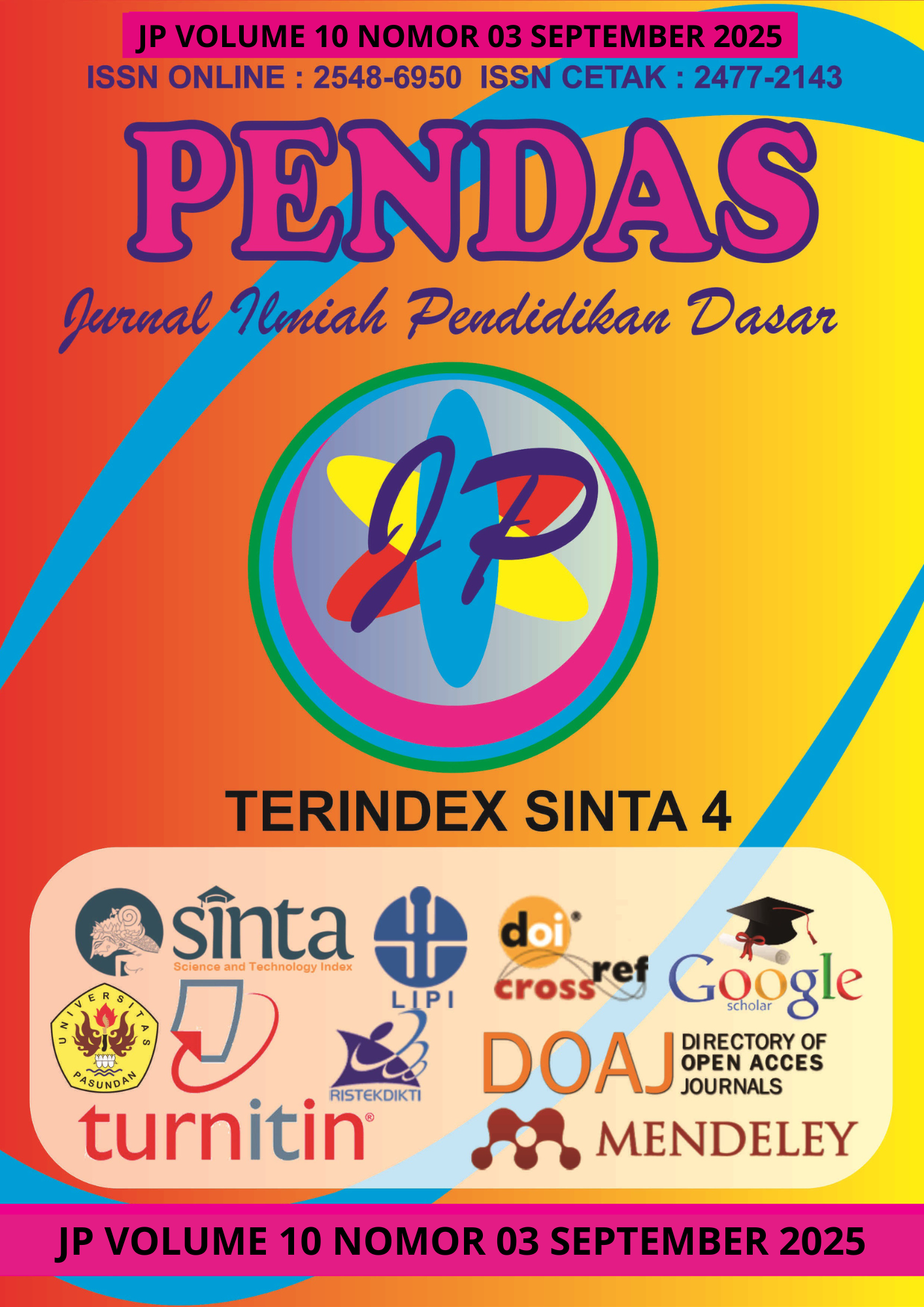PENGARUH MODEL PEMBELAJARAN PROBLEM BASED LEARNING TERHADAP KEMAMPUAN BERFIKIR KRITIS DALAM PEMBELAJARAN PENDIDIKAN PANCASILA SISWA KELAS V SD INPRES BONTOALA II KABUPATEN GOWA
DOI:
https://doi.org/10.23969/jp.v10i03.31265Keywords:
Problem Based Learning Model, Critical Thinking Skills, Pancasila EducationAbstract
This study aims to analyze the effect of the Problem Based Learning (PBL) model on the critical thinking skills of fifth-grade students at SD Inpres Bontoala II Gowa Regency in Pancasila Education subject. This study was based on initial observations showing that students tended to be passive and less capable of identifying and analyzing the core problems, indicating low critical thinking skills due to conventional learning methods. Using a quantitative approach with a quasi-experimental design of the nonequivalent control group type, this study involved the entire population of fifth-grade students at SD Inpres Bontoala II Gowa Regency. The research sample consisted of 22 students from class VA as the experimental group and 22 students from class VB as the control group, selected using a purposive sampling technique. Data collection was carried out using critical thinking skills test sheets and PBL model implementation observation sheets. Data analysis was performed descriptively and inferentially. The research results showed that (1) the implementation of the PBL model in the experimental group proceeded very well, with a significant increase in teacher and student observations from the "fairly good" category to "very good." (2) The critical thinking skills of the experimental group students were significantly higher compared to the control group students, evidenced by posttest scores showing more students in the high and very high categories in the experimental group. (3) There was a positive and significant influence of the PBL model on students' critical thinking skills, with a probability value less than 0.05, indicating a clear difference between the group using PBL and the group not using it. This study concludes that the Problem Based Learning model is effective in improving students' critical thinking skills in Pancasila Education.
Downloads
References
Amin, S. (2017). Pengaruh Model Pembelajaran Problem Based Learning terhadap Kemampuan Berpikir Kritis dan Hasil Belajar Geografi, Jurnal Pendidikan Geografi 4(3), 25-36.
Ennis, R.H. (2011). The Nature of Critical Thinking : An Outline of Critical Thinking Dispositions and Abilities. Campaign : University of Illinois.
Facione, P. A. (2011). Critical Thinking: What It Is and Why It Counts. Millbrae: Measured Reasons and The California Academic Press.
Karyani, Pengaruh Model Pembelajaran Problem Based Learning Terhadap Kemampuan Berpikir Kritis Siswa Kelas V Peredaran Darah Pada Manusia Di MI Darul Ulum Ngaliyan Semarang, 2022
Riduwan, & Sunarto. (2017). Pengantar Statistika untuk Penelitian : Pendidikan, Sosial, Komunikasi, Ekonomi dan Bisnis. Bandung: Alfabeta.
Downloads
Published
Issue
Section
License
Copyright (c) 2025 Pendas : Jurnal Ilmiah Pendidikan Dasar

This work is licensed under a Creative Commons Attribution 4.0 International License.














































